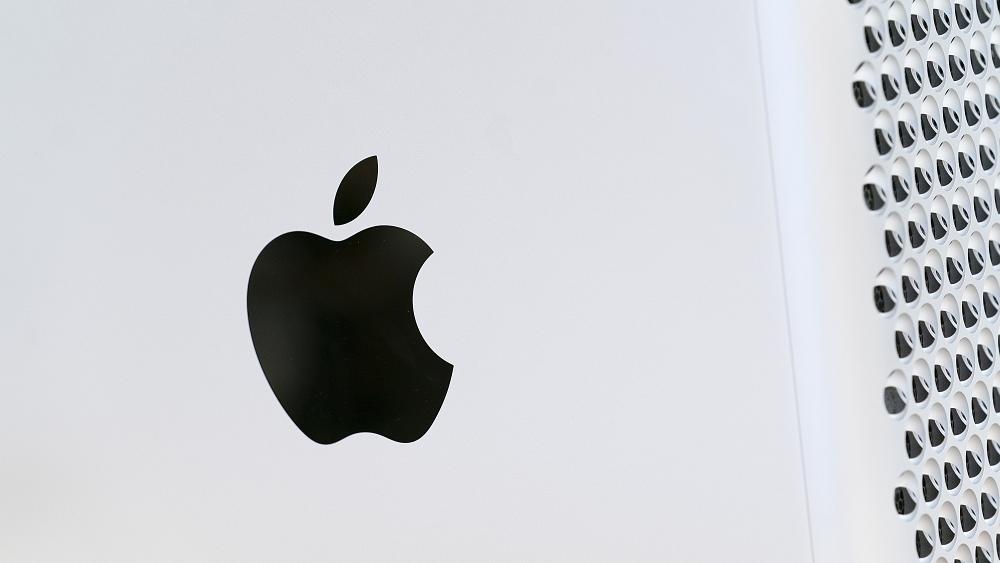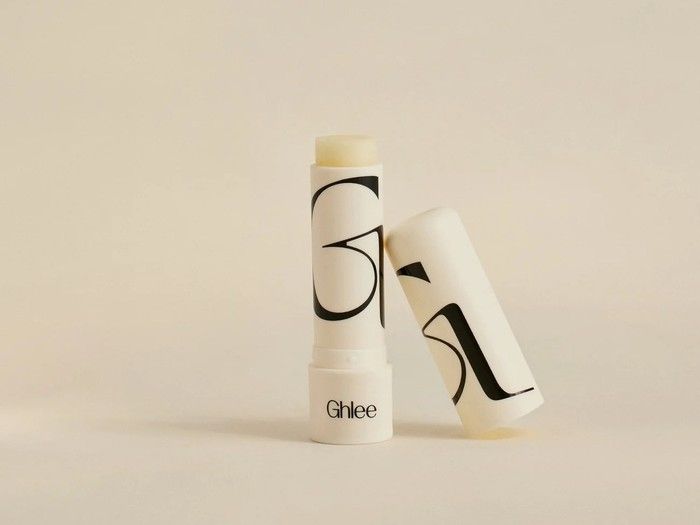Tech
Apple to scan US iPhones for images of child sexual abuse – Euronews

Apple unveiled plans to scan U.S. iPhones for images of child sexual abuse, drawing applause from child protection groups but raising concern among some security researchers that the system could be misused, including by governments looking to surveil their citizens.
The tool designed to detect known images of child sexual abuse, called “neuralMatch,” will scan images before they are uploaded to iCloud. If it finds a match, the image will be reviewed by a human. If child pornography is confirmed, the user’s account will be disabled and the National Center for Missing and Exploited Children notified.
Separately, Apple plans to scan users’ encrypted messages for sexually explicit content as a child safety measure, which also alarmed privacy advocates.
The detection system will only flag images that are already in the centre’s database of known child pornography. Parents snapping innocent photos of a child in the bath presumably need not worry. But researchers say the matching tool — which doesn’t “see” such images, just mathematical “fingerprints” that represent them — could be put to more nefarious purposes.
Matthew Green, a top cryptography researcher at Johns Hopkins University, warned that the system could be used to frame innocent people by sending them seemingly innocuous images designed to trigger matches for child pornography. That could fool Apple’s algorithm and alert law enforcement. “Researchers have been able to do this pretty easily,” he said of the ability to trick such systems.
Other abuses could include government surveillance of dissidents or protesters. “What happens when the Chinese government says, ‘Here is a list of files that we want you to scan for,’” Green asked. “Does Apple say no? I hope they say no, but their technology won’t say no.”
Tech companies including Microsoft, Google, Facebook and others have for years been sharing digital fingerprints of known child sexual abuse images. Apple has used those to scan user files stored in its iCloud service, which is not as securely encrypted as its on-device data, for child pornography.
Apple has been under government pressure for years to allow for increased surveillance of encrypted data. Coming up with the new security measures required Apple to perform a delicate balancing act between cracking down on the exploitation of children while keeping its high-profile commitment to protecting the privacy of its users.
But a dejected Electronic Frontier Foundation, the online civil liberties pioneer, called Apple’s compromise on privacy protections “a shocking about-face for users who have relied on the company’s leadership in privacy and security.”
Meanwhile, the computer scientist who more than a decade ago invented PhotoDNA, the technology used by law enforcement to identify child pornography online, acknowledged the potential for abuse of Apple’s system but said it was far outweighed by the imperative of battling child sexual abuse.
“Is it possible? Of course. But is it something that I’m concerned about? No,” said Hany Farid, a researcher at the University of California at Berkeley, who argues that plenty of other programmes designed to secure devices from various threats haven’t seen “this type of mission creep.” For example, WhatsApp provides users with end-to-end encryption to protect their privacy, but also employs a system for detecting malware and warning users not to click on harmful links.
Apple was one of the first major companies to embrace “end-to-end” encryption, in which messages are scrambled so that only their senders and recipients can read them. Law enforcement, however, has long pressured the company for access to that information in order to investigate crimes such as terrorism or child sexual exploitation.
Apple said the latest changes will roll out this year as part of updates to its operating software for iPhones, Macs and Apple Watches.
“Apple’s expanded protection for children is a game-changer,” John Clark, the president and CEO of the National Center for Missing and Exploited Children, said in a statement. “With so many people using Apple products, these new safety measures have lifesaving potential for children.”
Julia Cordua, the CEO of Thorn, said that Apple’s technology balances “the need for privacy with digital safety for children.” Thorn, a nonprofit founded by Demi Moore and Ashton Kutcher, uses technology to help protect children from sexual abuse by identifying victims and working with tech platforms.
But in a blistering critique, the Washington-based nonprofit Center for Democracy and Technology called on Apple to abandon the changes, which it said effectively destroy the company’s guarantee of “end-to-end encryption.” Scanning of messages for sexually explicit content on phones or computers effectively breaks the security, it said.
The organisation also questioned Apple’s technology for differentiating between dangerous content and something as tame as art or a meme. Such technologies are notoriously error-prone, CDT said in an emailed statement. Apple denies that the changes amount to a backdoor that degrades its encryption. It says they are carefully considered innovations that do not disturb user privacy but rather strongly protect it.
Separately, Apple said its messaging app will use on-device machine learning to identify and blur sexually explicit photos on children’s phones and can also warn the parents of younger children via text message. It also said that its software would “intervene” when users try to search for topics related to child sexual abuse.
In order to receive warnings about sexually explicit images on their children’s devices, parents will have to enroll their child’s phone. Kids over 13 can unenroll, meaning parents of teenagers won’t get notifications.
Apple said neither feature would compromise the security of private communications or notify police.
Tech
Meta Expands VR Operating System to Third-Party Hardware Makers – MacRumors


Facebook parent company Meta today announced the upcoming expansion of Meta Horizon OS, a virtual and augmented reality operating system that will be available to third-party hardware manufacturers that want to design their own headsets.
Right now, Meta sells the Quest line of headsets, but the company wants to provide the software for third-party VR and AR products in the future, much like Microsoft offers Windows for all manner of third-party PCs.
Meta Horizon OS is the mixed reality operating system that Meta created for its own Quest headsets, and it has support for eye, face, hand, and body tracking along with passthrough, spatial anchors, scene understanding, and other features. There is a “social layer” that will allow the identities, avatars, and friends of users to move between virtual spaces on different devices.
According to Meta, multiple companies are working on devices that will use Meta Horizon OS. ASUS ROG is developing a performance gaming headset and Lenovo is working on mixed reality devices for productivity, learning, and entertainment. Meta says that it is also creating a limited edition version of Meta Quest in partnership with Xbox.
With the expansion of Meta Horizon OS to third-party hardware manufacturers, Meta is making it easier for any developer to ship VR software on the platform by removing barriers between the Horizon Store and App Lab.
By creating an operating system that can be used by other hardware manufacturers, Meta is inserting itself into the growing AR/VR ecosystem and creating opportunities for it to outpace Apple in mixed reality development. Apple launched the Vision Pro headset earlier this year, but software is lacking given the high price and limited distribution of the device.
According to a report from earlier today, interest in the Vision Pro is already waning at Apple’s retail locations with fewer people requesting demos.
Tech
Brian's Randoms from Sea Otter 2024 – Pinkbike.com


There have been more launches in the past two weeks than any other two-week period I can remember since I started sweeping floors at Freedom Bike Shop back in 2001. Yes, that means I’m very old. It also means that after several years of delayed product releases, some brands have finally cleared out enough inventory to share what they’ve been working on.
The Pinkbike team came down to Sea Otter this year with mixed expectations, and there were definitely some weird vibes. Everyone is concerned for the remaining Kona employees, and more than one brand expressed that their plan is to #surviveto2025. But overall we loved catching up with everyone, the weather was great, and somehow there was even more gear to cover. The industry might be going through a tough time, but ultimately riding bikes is still ridiculously fun and bike tech is as interesting as ever.
And on that note, here are a few of the random things that caught my eye during the show.
OutsideBrendan works smarter not harder, and dog Bubbie(?) is awesome.
I mistakenly thought it was a garage project kind of thing, but it’s a real brand with a promo video and everything.
And with that, it’s time to face my expense report. Until next year, Sea Otter!
Tech
We tried these three beauty products this week. Here are our thoughts – Vancouver Sun


Reviews and recommendations are unbiased and products are independently selected. Postmedia may earn an affiliate commission from purchases made through links on this page.
Article content
Skin Caviar Eye Lift Serum
They say: A luxury serum that firms, smooths and lifts the eye area. The dual-chamber product features the Swiss skin-care brand’s Cellular Complex to ‘restore youthfulness to the eye contour,’ along with a blend of caviar components.
We say: Our tester applied one pump of this serum to the eye area daily. Gently dabbed onto skin, the serum gave an instant boost of hydration. The liquid-serum formula was lightweight and non-sticky, providing an easy base for any additional skin-care or makeup products. With use, our tester reported fine lines and firmness were noticeably improved.
Article content
$760 | Holt Renfrew, holtrenfrew.com
Marc Anthony
Strictly Curls Curl Envy Leave-In Conditioner
They say: A leave-in hair conditioner formulated for curly hair. Boasting strand-smoothing ingredients such as avocado oil, Vitamin E and shea butter, the spray can be used on course, fine, thick or thin curls to promote softness, fight frizz and lock in hydration.
We say: Our tester spritzed this conditioner on her ultra-curly, frizz prone coif. The spray format makes application easy and mess-free. Used both as a de-tangler on freshly washed hair and as a curl pick-me-up in between washes, she found it left curls looking formed, smooth and not stiff.
$12.97 | Mass retailers, walmart.ca


Ghlee
Lip Balm
They say: A nourishing lip balm that features antioxidant-rich ghee, along with mango seed butter and Vitamin E to hydrate lips. Available in Original, Rose, Chai, Mango-Papaya and Mint.
We say: This lip balm gives a dose of smoothing hydration with one swipe. Our tester loved the rose iteration, which boasted the scent of a fresh bloom. It’s the kind of balm you keep reaching for in your bag, she reports.
Share this article in your social network
-
Business12 hours ago
Honda to build electric vehicles and battery plant in Ontario, sources say – Global News
-



 Science13 hours ago
Science13 hours agoWill We Know if TRAPPIST-1e has Life? – Universe Today
-
Investment16 hours ago
Down 80%, Is Carnival Stock a Once-in-a-Generation Investment Opportunity?
-



 Health12 hours ago
Health12 hours agoSimcoe-Muskoka health unit urges residents to get immunized
-
News17 hours ago
Honda expected to announce multi-billion dollar deal to assemble EVs in Ontario
-
Art22 hours ago
‘Luminous’ truck strap artwork wins prestigious Biennale prize in first for New Zealand – The Guardian
-



 Sports22 hours ago
Sports22 hours agoJets score 7, hold off Avalanche in Game 1 of West 1st Round – NHL.com
-



 Tech16 hours ago
Tech16 hours agoIndigenous Craft and Vendors Market a success in Halifax





